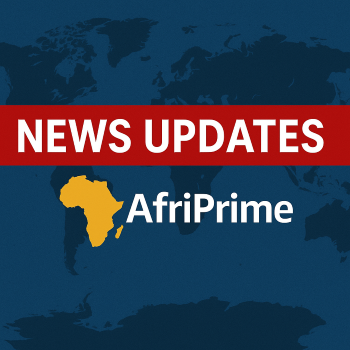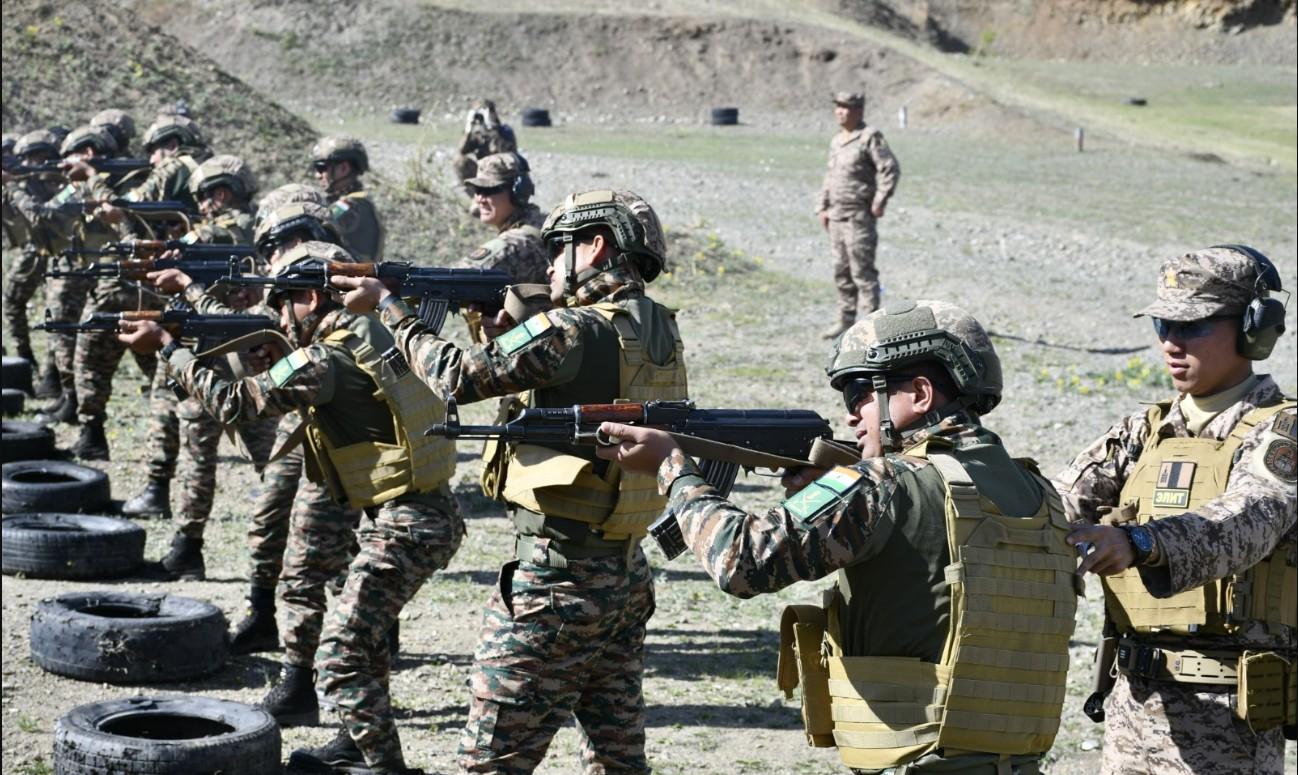Indian Military Drills In China’s Backyard With Mongolia; Chinese Bloggers Rattled, Warn Danger To Siberia 2 Pipeline

Mongolia is emerging as a battleground for influence between India and China. As China signed a trilateral agreement with Mongolia and Russia, India has been strengthening its military ties with the Central Asian country.
The 17th edition of the annual bilateral military exercise between India and Mongolia, ‘Nomadic Elephant 2025’, began on May 31, a day after Mongolia took a concrete step to revive a troika with China and Russia by signing a cooperation agreement with its two neighbours.
Beijing has not taken this pre-scheduled military exercise kindly and has cautioned Mongolia against “diplomatic independence”. The wargames with India, according to a Chinese media outlet, cast a shadow of doubt over the Power of Siberia 2 pipeline project from Russia to China, which will traverse through Mongolia.
By strengthening ties with Mongolia, India has been keen to secure coking coal and critical minerals, such as copper and rare earth elements, by evading the traditional trading route through China. India is contemplating using Russia as the transportation corridor for these critical minerals.
Mongolia has emerged as a critical pivot for regional influence. India’s religious, military, and economic ties with Mongolia are now intersecting with those of China.
An article in China News Service, the second-largest state-run media outlet in China, dating back to 2013, revealed Beijing’s determination to reclaim territories lost during the Opium War of 1840-42.

In the piece titled “Six Wars China is Sure to Fight in the Next 50 Years”, Mongolia was also one of the targets of China’s expansionist ambitions, and an invasion of Mongolia was to be expected between 2045 and 2050.
The Chinese author asserted that Mongolia, referred to as “Outer Mongolia,” is an integral part of their territory, distinct from the Chinese province known as the Autonomous Region of “Inner Mongolia.”
In 2016, China closed down a key border crossing with Mongolia after the visit of the Tibetan spiritual leader, the Dalai Lama, to Ulaanbaatar. Beijing also imposed new tariffs on commodity shipments between China and Mongolia. Mongolia had been negotiating a loan with China to tide it over its acute financial troubles. But China cancelled talks to discuss the loan. Mongolia was hoping to get a $4.2 billion loan from Beijing.
Land-locked Mongolia has been heavily dependent on China. At that time, China was by far Mongolia’s biggest export destination; in 2013, China accounted for 90 percent of Mongolia’s exports. It was also the largest source of imports for the Mongolian economy, accounting for 37.8 percent of the total in 2013, compared to Russia, which accounted for 27.6 percent. Minerals made up the majority of those exports, primarily copper and coal.
Mongolia’s geographic proximity to North Korea and Afghanistan makes it strategically important for the US.
Against this backdrop, India-Mongolia relations, which have been marked by centuries of spiritual ties, have seen a notable increase.
Mongolia sought to foster strategic ties with India to counterbalance China’s influence. The ties are part of the broader spectrum of the Sino-Indian geopolitical rivalry for influence with small and middle powers. Prime Minister Narendra Modi visited Mongolia during his first term in 2015 and extended a credit line of USD 1 billion to Mongolia.
Prime Minister Modi, addressing the Mongolian Parliament on Sunday, became the only foreign dignitary to address the State Great Khural on a holiday.
In 2019, India and Mongolia signed agreements in the fields of outer space use for civilian purposes and disaster management. India has been pushing for enhanced economic cooperation with Mongolia to counterbalance Chinese interests and influence in the region, which has developed primarily due to China’s financial assistance.
New Delhi and Ulaanbaatar already have a civil nuclear deal in place since 2009, and the India-Mongolia Joint Working Group for defense cooperation meets annually. Mongolian military officers receive their training in India and participate in a joint military exercise called ‘Nomadic Elephant’. India also participates regularly in the multilateral exercise ‘Khan Quest’ in Mongolia.
The Nomadic Elephant 2025 is taking place at the Special Forces training centre in Ulaanbaatar, Mongolia. The exercise will conclude on June 13, 2025, and will involve joint counter terrorism drills in semi-mountainous terrain. The statement by the Indian Army called it “a critical area of operational focus given the contemporary security landscape”.
“The troops will also rehearse activities conducted during United Nations peacekeeping operations, simulating real-world situations where multinational forces must collaborate effectively in complex environments. This collaboration aims to improve both forces’ ability to respond swiftly and effectively during operations,” the statement added.
India, Mongolia Drills Worry Chinese
Chinese military bloggers are observing this development with scepticism. One blogger commented: “The fact that China and Russia have just established a deep foundation for political and economic cooperation, while Mongolia is immediately engaging in military cooperation with India, makes it difficult not to doubt the deeper intentions behind it.” The article says that this development has geopolitical implications.
Russia and China are collaborating on a $100 billion gas pipeline, dubbed Power of Siberia 2, to transport 50 billion cubic meters (bcm) of natural gas annually from Russia to China via Mongolia.
The pipeline is directly related to the success or failure of Russia’s eastward energy strategy. “The project, which was supposed to be a key opportunity for Mongolia to deepen its cooperation with China and Russia, is now likely to face more uncertainty because of Mongolia’s desire for ‘diplomatic independence’,” the Chinese blogger commented.
Now, Mongolia’s dependence on China is nearly 70%. Almost all resources, such as coal, copper ore, and rare earths, rely on the Chinese market, while Mongolia is also heavily dependent on Russia’s energy supply and infrastructure construction.
“This makes Mongolia oscillate between ‘strategic autonomy’ and ‘reality dependence’. It wants to get out of the embarrassing situation between China and Russia, but it cannot be separated from the economic support of the two countries,” the blogger cautioned.
When An Indian Buddhist Monk Turned Diplomat In Mongolia
China might claim that India and Mongolia have no historic ties, but the ties of Buddhism have been strong since the beginning.
Kushok Bakula Rinpoche, the 19th incarnation of Arhat Bakula, one of the 16 direct disciples of Lord Buddha, had been instrumental in strengthening the ties between the two countries separated by a vast landmass.
One of the most prominent Buddhist leaders of independent India, Kushok Bakula, has been credited with the revival of Buddhism in Mongolia following the collapse of the Soviet Union.
He was India’s Ambassador to Mongolia from 1990 to 2000. During his tenure, the Indian High Commission not only had long queues for visa approvals but also of devotees seeking his blessings.
Talking about him, P. Ochirbat, the first democratically elected President of Mongolia (1992-97) said: “Ambassador Bakula Rinpoche was a statesman, a diplomat, and a Buddhist clergy who carved out his niche in the history of Mongolia. He recognised the historical necessity of developing Mongolia’s national culture to restore the glory of Buddhism, an inseparable part of its cultural heritage.
“In 1994, I paid a State Visit to India during which the two countries signed the historic Treaty of Cooperation and Friendship. It was an unprecedented and a landmark agreement in the history of bilateral relations, and here I would like to emphasise the personal efforts made by Bakula Rinpoche in the accomplishment of this feat.”
- Questions and Answers
- Opinion
- Motivational and Inspiring Story
- Technology
- Live and Let live
- Focus
- Geopolitics
- Military-Arms/Equipment
- Security
- Economy
- Beasts of Nations
- Machine Tools-The “Mother Industry”
- Art
- Causes
- Crafts
- Dance
- Drinks
- Film/Movie
- Fitness
- Food
- Games
- Gardening
- Health
- Home
- Literature
- Music
- Networking
- Other
- Party
- Religion
- Shopping
- Sports
- Theater
- Health and Wellness
- News
- Culture

